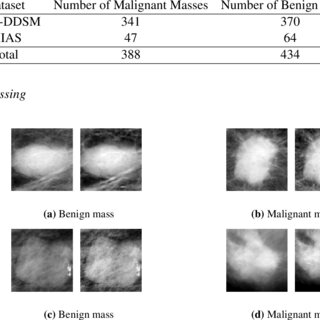Mammography serves as a critical tool in the early detection of breast cancer, a disease that affects millions of women worldwide. Detecting breast cancer in its early stages greatly improves the chances of successful treatment and survival. Therefore, understanding when to start regular mammograms is critical to women's health.
Current guidelines for mammograms
Traditionally, guidelines recommended that women begin mammograms at age 50 and continue every two years. However, recent discussions in the medical community have sparked debate about whether to lower the starting age to 40.
Mammography guideline debates
The debate over mammogram guidelines revolves around the balance between the benefits of early detection and the potential harms of over-screening. Advocates of starting mammograms at age 40 say it leads to the detection of more early-stage cancers, which can potentially save lives.
On the contrary, opponents express concerns about the risks associated with false positive findings, unnecessary biopsies and radiation exposure from frequent screenings.
Benefits of starting mammography at age 40
Starting mammography at age 40 increases the likelihood of detecting breast cancer at an early stage, when treatment is most effective. Research suggests that early detection through regular screenings can lead to higher survival rates for women diagnosed with breast cancer.
Risks of starting a mammogram at age 40
Despite the benefits, there are risks associated with starting mammograms at age 40, including false positives that can lead to unnecessary anxiety and medical intervention. In addition, frequent screenings can expose women to cumulative radiation over time.
Personalized risk assessment
Individual risk assessment plays a vital role in determining the appropriate age to start mammography. Factors such as family history, genetic predisposition, and personal health history affect breast cancer risk and guide screening recommendations.
Communication between patient and doctor
Effective communication between patients and healthcare providers is essential when making decisions about mammography screening. Open discussions about individual risk factors, screening options and preferences allow women to make informed decisions.
The importance of breast health awareness
In addition to mammograms, breast health awareness is vital for early detection. Regular breast self-examination and immediate medical attention for any changes or abnormalities can help in the early diagnosis of breast cancer.
Costs and insurance coverage
Availability of mammography screenings is a significant issue for many women, especially those without adequate insurance coverage. Addressing barriers to access ensures that all women have the opportunity to receive early screening.
Advances in breast cancer detection
Advances in technology continue to improve breast cancer detection methods. New technologies such as 3D mammography and molecular breast imaging hold promise for improving early detection rates and refining screening guidelines.
Navigating the screening decision
Guidance in the decision to undergo a mammogram involves weighing the potential benefits against the risks and considering individual circumstances. Consulting with health professionals and engaging in shared decision-making facilitates informed decisions.
Support and resources for women
Women facing breast cancer screening can access a variety of support services and resources. Support groups, counseling services and educational materials offer emotional support and practical guidance throughout the screening process.
Conclusion
In conclusion, the decision to start mammography screening at age 40 requires careful consideration of individual risk factors, preferences, and current recommendations. By prioritizing breast health awareness, engaging in open communication with health care providers, and staying informed about advances in screening technologies, women can take proactive steps toward early detection and better outcomes.
Frequently asked questions
What should I do if I have a family history of breast cancer?
If you have a family history of breast cancer, it is essential that you discuss your risk factors with your healthcare provider. Depending on your individual risk profile, your doctor may recommend earlier or more frequent mammograms, genetic testing, or other preventive measures.
Are mammograms painful?
While mammograms may cause temporary discomfort or pressure, they are generally not considered painful. The procedure involves compression of the breast tissue to obtain clear images, which may cause some discomfort for a short time.
Can I request a mammogram before the recommended age?
Yes, you can discuss your concerns and preferences with your healthcare provider and request a mammogram before the recommended age if you feel it is necessary based on your individual risk factors and medical history.
How accurate are mammograms in detecting breast cancer?
Mammograms are an effective tool for breast cancer detection with high sensitivity and specificity. However, it may not detect all types of breast cancer, especially in women with dense breast tissue or certain types of tumors.
What happens if a mammogram detects an abnormality?
If the mammogram reveals an abnormality, further testing may be necessary, which may include additional imaging tests such as ultrasound or MRI, and possibly a biopsy to determine whether the abnormality is cancerous or benign.










0 Comments